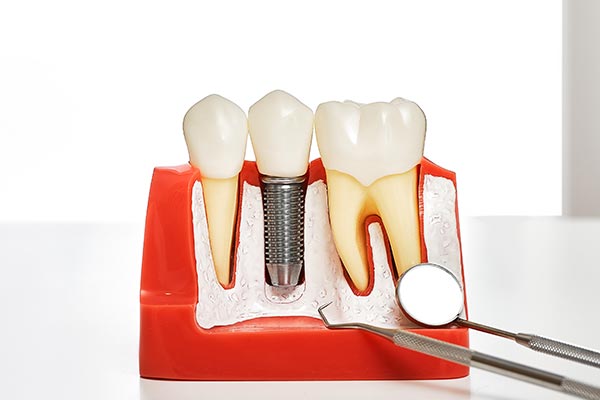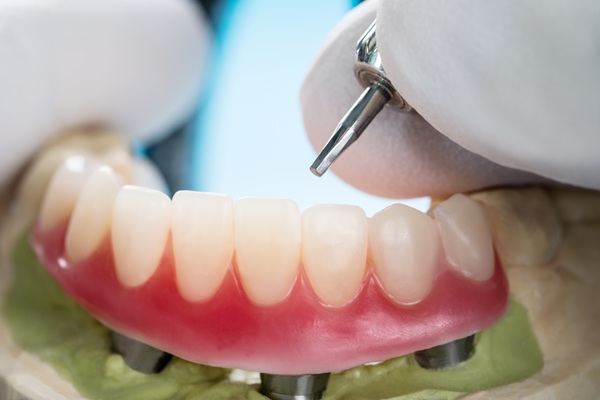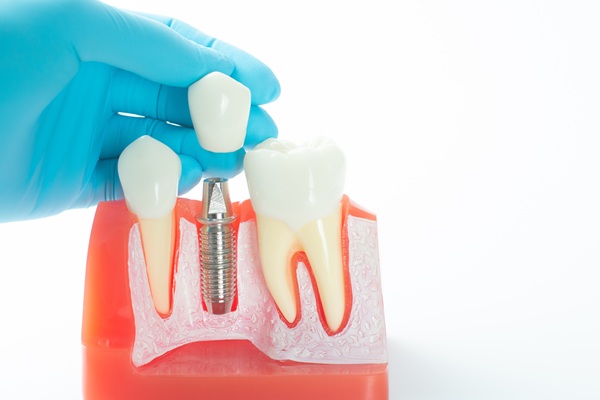Your Guide to Different Kinds of Dental Implants
 Choosing to invest in dental implants is no minor decision. The procedure requires small surgeries, and the overall process can last months, requiring dedication to restoring oral health and a full smile. The results, however, are well worth the time and effort for most patients.
Choosing to invest in dental implants is no minor decision. The procedure requires small surgeries, and the overall process can last months, requiring dedication to restoring oral health and a full smile. The results, however, are well worth the time and effort for most patients.
Before deciding to commit, patients first need to understand the different options for implants and what each specifically addresses in the mouth. While implants are mainly used to replace missing teeth, some persons may benefit from single implants while others do better with implant-retained dentures. The main forms of implants can be separated into two basic types, followed by three different kinds of possible appliances.
Two basic types
The most critical factor in receiving dental implants lies in the jawbone. If someone has a weaker jawbone that is not healthy enough to withstand the surgery and pressure involved with implants, then another implant-like option may need to be considered.
Endosteal
An endosteal implant is the most common type of procedure. The process involves drilling holes for the implant into the patient’s jawbone and inserting metal posts. The bone must then heal completely around the post, creating a functional connection with it to mimic a natural tooth root. For this procedure to succeed, the jawbone must be robust and capable of complete healing.
Subperiosteal
Even after bone grafting, some patients do not have the structural thickness or strength in the jawbone to support endosteal implants. Instead, these individuals can receive subperiosteal implants. In these cases, the metal posts are secured within the gums but on top of the bone.
Three main endosteal implants
Patients go through a number of exams and assessments to make sure the jawbone can undergo surgery without adverse effects. Once candidacy is confirmed, there are three options to consider. The one a patient chooses mainly depends on how many teeth are missing in the mouth.
Single implant
As it implies, single dental implants replace one missing tooth. The gap may be anywhere in the mouth, and one post is secured in the place of the former natural root. Once the jawbone has healed from the placement and bonded to the post, an abutment is attached above the gumline. Lastly, the crown is secured to the abutment, and the gap is filled.
Bridge implant
Implant-supported bridges are necessary when a patient is missing a number of teeth in a row. Instead of drilling many holes in the jawbone for numerous implants, only two implants are placed at each end of the row. The crowns attached to those implants can then support a dental bridge that fills in all the gaps.
Denture implant
An implant-retained denture is for someone missing most teeth. Several implants are secured throughout the mouth, and a full denture is attached to them. This denture can be removable or permanent.
Conclusion
Obtaining an assessment of oral health and missing teeth from a dentist can guide a patient toward a specific implant type. Knowing that another implant option exists provides an alternative for patients who do not have a strong jawbone.
Request an appointment or call Rafael E. Cordero, DDS PA at 561-763-9221 for an appointment in our Palm Beach Gardens office.
Recent Posts
Preparing for dental implant recovery is just as important as getting ready for the dental implants themselves. A good recovery sets the stage for successful implants that can last the rest of your life, with few additional changes or fixes. Here is what to expect after a dental implant procedure so you can adjust your…
It is common for people to be self-conscious about their smile, and many do not realize just how big of an impact that expert implant dentistry can have. Implants provide functional and aesthetic benefits that other restorations cannot achieve. The implant process is more in-depth than options like dentures, so the overall outcome is also…
Dental implants are permanent options for replacing missing teeth and repairing one's smile. Instead of contending with the annoying glue of dentures and the risk of them slipping out while talking, patients can enjoy dental devices that function like natural teeth by opting for dental implants. To determine if these are the right choices for…


